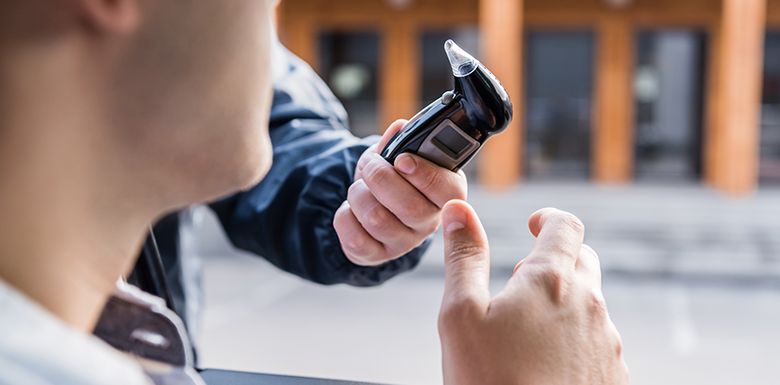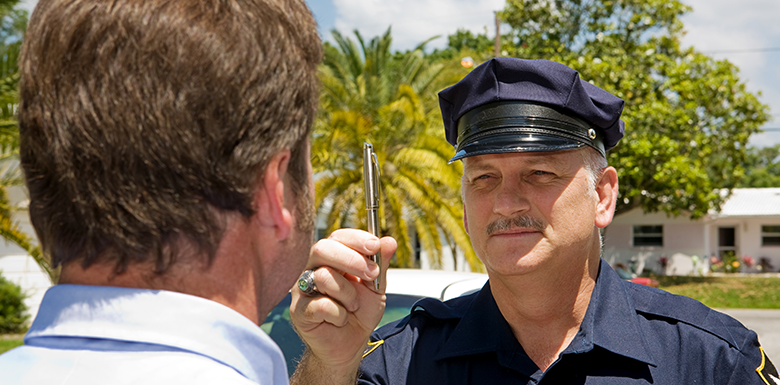Why Work With Our Tampa DUI Lawyers?
Brett Metcalf is a Tampa native who believes in serving his community. After beginning his career as a prosecutor in the State Attorney’s Office, Brett opened his firm in July 2012. Since then, he has defended many people against DUI charges.
Brett has successfully obtained the best possible results for many of his clients, earning him more than 90 five-star reviews. He has a perfect 10.0 rating on Avvo.com. His results also have been recognized by many legal organizations. The National Trial Lawyers included Brett in the Top 40 Under 40 and the Top 100 Trial Lawyers. Super Lawyers has named Brett a Rising Star two years in a row. In 2018, Brett’s peers voted him the #1 DUI Defense Lawyer in Tampa through a Tampa Magazine survey.
With years of experience prosecuting and defending against first and subsequent DUI charges, Brett knows how to handle your case efficiently and the best method for pursuing reduced charges, a dismissal, an acquittal, or minimal penalties upon conviction.
Steps our Tampa DUI Lawyers take during the legal process include:
- Investigating the stop and arrest that led to the DUI charges.
- Validating any breath or blood test used to determine your BAC.
- Analyzing the instructions given for field sobriety tests (FSTs) and the alleged results.
- Submitting legal documents on your behalf.
- Representing you in court.
- Helping you obtain release from jail, including arranging bail.
- Challenging any violations of your constitutional rights.
- Challenging the results of DUI chemical tests.
- Challenging the reliability of FSTs.
- Pursuing a dismissal or acquittal.
- Taking steps to mitigate the consequences of a potential conviction.

Defending Against DUI Charges in Tampa, Florida
When we receive phone calls and emails about DUI charges, the most common question is, “How can a DUI defense lawyer get me off?” The next question is, “What defenses can I use against a DUI?”
How Can I Get Out of a DUI in Tampa?
Getting out of a DUI requires the prosecutor to drop the charges or the judge to dismiss the case. In either situation, the charges do not move forward.
A DUI attorney can explain the various methods of pursuing a dismissal in your DUI case. Certain defense strategies can lead a judge to dismiss the case. For example, through a motion to dismiss, we may establish prior to trial that there is insufficient evidence to prove you committed the offense beyond a reasonable doubt.
We may convince the prosecutor to drop the charges, or we may place the prosecutor in the position where dropping the charges is the reasonable thing to do. For example, we may find the police found evidence against you by violating your constitutional rights. We would file a motion to have this evidence ruled inadmissible. Without this evidence, the prosecutor may not have a strong enough case to rationalize the use of their time and resources in bringing the case to trial.
What Defenses Can Be Used to Fight a DUI Charge?
We may use one or more defenses to establish that the judge or jury cannot find you guilty of a DUI beyond a reasonable doubt. In other words, our DUI defense attorneys will use one or several defenses to raise doubt.
If you elect to have a jury trial, then your drunk driving lawyer will analyze juror demographics, sympathies, and biases. A thorough understanding of the attitudes and believes of the potential jurors is essential in determining the best possible defense strategy during a jury trial.
Possible DUI defenses include:
No Reasonable Suspicion to Stop You:
Your DUI attorney will investigate the facts surrounding when and how an officer stopped you to determine if it was a lawful stop. If the police subjected you to an illegal traffic stop, then any evidence obtained following that stop is inadmissible – including your performance of field sobriety exercises and your refusal to or result of chemical testing.
For a DUI stop to be lawful, an officer must either witness a traffic infraction, like speeding, or must have reasonable suspicion that you are impaired based on your driving pattern. This can be a fact intensive analysis that varies from case to case. Generally, a successful challenge here leads to a dismissal of your DUI case.
Insufficient Evidence You Were Impaired:
To be convicted of a DUI in Tampa, the prosecutor must prove beyond a reasonable doubt that you were under the influence of alcohol or a controlled substance. However, there may be too little evidence that you were impaired. If you did well on field sobriety exercises, the officer’s dash cam will show that.
No matter your BAC, we will argue that the jury should trust their eyes. They know what a drunk person looks like and they likely won’t know anything about how the breath test machine works. When the evidence of the prosecution’s case is in conflict, we will be prepared to ask for a not guilty verdict.
DUI Checkpoint Did Not Comply with Standards:
Many states like Florida allow the police to conduct DUI/sobriety checkpoints. However, these roadblocks must meet certain standards to be constitutional. These standards require a law enforcement agency to adopt written guidelines before implementing a checkpoint. These guidelines must detail how the checkpoint will be conducted and which vehicles will be stopped. We will carefully review how the DUI checkpoint was operated to determine if it met or violated the necessary standards.
Not in Actual Physical Control of a Vehicle:
Florida DUI law states you can be charged if you were driving or in actual physical control of a vehicle. This has led some people who are sleeping off their drinks to be arrested and charged, even though the vehicle was not in motion. If you were not driving the vehicle, a DUI lawyer may argue that you were not in actual physical control of the vehicle at the time of the arrest.
Test Results Were Unreliable:
If the prosecutor wishes to use the results of a breath, blood, or urine test in court, then that test must have been administered correctly, using reliable and properly calibrated equipment, and by an individual with the proper qualifications. Our Tampa DUI lawyers will scrutinize how your breath, blood, or urine sample was tested to determine if the results are reliable or whether some flaw makes the results unreliable and inappropriate for admission in court.
Breathalyzer Was Inaccurate:
In Florida, all breath tests since 2007 have conducted on the Intoxilyzer 8000. The Florida Department of Law Enforcement has written its own rules on inspecting this outdated machine to make sure the results are “accurate.” There is a significant margin for error, and many factors can influence the test results. Knowing the ins-and-outs of the testing and inspection rules is crucial to establishing that the results of your breath test are unreliable.

Penalties and Jail Time for a DUI Charge in Tampa, FL
Whether you face a first offense DUI or third DUI, you must be aware of the consequences.
First DUI with a BAC Under 0.15%
- A fine up to $1,000.00
- Up to 6 months in jail
- 50 hours of community service
- Up to 1 year of probation
- Driver’s license revocation between 180 days and one year
- Level 1 DUI school
- 10-day vehicle impoundment
If your BAC is above 0.15% at the time of the DUI stop, you face higher fines, longer-term of possible jail time, and the requirement to install and use an ignition interlock device on your vehicle for at least 6 months.
Second DUI With a BAC Under 0.15%
- Fine up to $2,000.00
- Up to 9 months in jail
- Up to 1 year of probation
- Driver’s license revocation between 180 days and one year
- Level 2 DUI school
- 30-day vehicle impoundment
- 6 months of an ignition interlock device on your vehicle
If your second DUI offense comes within five years of your first, then the judge must impose at least 10 days of jail time and a five-year license revocation.
If at the time of your second DUI, you had a BAC of 0.15% or higher, you face higher fines and up to 12 months in jail, in addition to the other penalties.
Multiple DUIs
If you are charged with a third DUI within 10 years of your previous two DUIs, then you will be charged with a felony. The penalties include:
- Fines up to $5,000
- Up to 5 years in prison with a minimum of 30 days in jail
- 90-day vehicle impoundment
- 10-year license revocation
- Level 3 DUI school
- Ignition interlock device for 2 years
Felony DUI Charges
You can face a felony DUI charge if you are accused of a:
- Third DUI within 10 years
- Fourth DUI within any time
- DUI involving serious bodily injury
- DUI manslaughter
DUI with Serious Bodily Injury
If you are arrested after causing a DUI accident that results in serious bodily injury, you will be charged with a third-degree felony. You face up to 5 years in prison and fines up to $5,000 as well as restitution, license revocation, ignition interlock device, vehicle impoundment, and DUI school.
DUI Manslaughter Charges
If a DUI accident results in a person’s death or the loss of a pregnancy, you will be charged with a second-degree felony. This is punishable by up to 15 years in prison and fines up to $10,000 as well as additional DUI penalties. The judge must also impose a minimum-mandatory 4 year prison sentence if you are convicted.
Drug DUI Charges
You can be charged with and convicted of a DUI without any alcohol in your system. Florida’s DUI law states you can be charged for a DUI if you are under the influence of any chemical substance or controlled substance. A drug DUI can include valid prescription drugs that impair your ability to drive safely.
Underage DUI
If you are under 21 years old, you can face DUI consequences if your BAC is at least 0.02% or if you are impaired due to drugs. If your BAC is between 0.02% and 0.07%, you face a 6-month license suspension. However, if you refused to submit to a chemical test, your license will be suspended for 1 year.
If your BAC was 0.08% or above, you face the same penalties as a driver over the age of 21 years for a first, second, or subsequent DUI.
CDL DUI
Drivers with a commercial driver’s license and who are in their commercial vehicles have a lower BAC limit of 0.04%. If you are a CDL driver in your truck, you face the same penalties for DUIs in Florida. However, if you lose the administrative suspension hearing or are convicted of a DUI, your CDL will be disqualified – jeopardizing your livelihood.
Boating Under The Influence
It is illegal to operate a boat while under the influence of drugs or alcohol in Florida waters. The BAC limit is the same for boating as it is for driving. For a first offense boating under the influence charge, you face fines up to $1,000 and 6 months in jail. For a second offense, you face fines up to $2,000 and jail for up to 9 months. If your BAC was above 0.15%, you would face higher fines and longer jail time.
You also face a felony DUI a third offense within 10 years or a fourth boating DUI.
Collateral Consequences of a Tampa DUI Conviction
You need to be aware of the additional consequences you face for pleading or being convicted of a DUI:
- Employment Problems: Without a driver’s license and a DUI on your record, your employment opportunities will be limited.
- Professional License Difficulties: A DUI conviction may make you ineligible to obtain certain professional licenses. Even if you are eligible, the governing body of the profession may hesitate to grant you a license on ethical grounds.
- Immigration Complications: If you are in the U.S. on a visa, a DUI can make you ineligible for permanent residency or naturalization. It also can lead to deportation proceedings.
- Child Custody Issues: A DUI conviction and the loss of your driver’s license can be used against you by your children’s other parent. Your child custody or visitation could be reduced.
- Auto Insurance Premiums: Your auto insurance premiums will increase—potentially significantly.
- Felony Conviction Consequences: If you are convicted of a felony DUI, you will lose your right to own or possess firearms.
Understanding the Steps in a Tampa DUI Case
Although every case is different, here is an overview of the steps you may go through in your DUI case:
-
Traffic Stop and Arrest: The process starts with a traffic stop by a police officer who has probable cause to suspect DUI. This could be due to swerving, speeding, or a broken taillight. You may be asked to perform field sobriety tests.
-
Booking and Bail: After arrest, you’ll be taken to the station for booking. Fingerprints, photos, and personal information are collected. You might be offered a breath or urine test (implied consent law). You’ll likely be held until sober (BAC below 0.05%) and then released on bail.
-
Administrative License Suspension: Independent of the court case, the Department of Highway Safety and Motor Vehicles (DHSMV) may suspend your driver’s license. You have the right to a hearing to contest this.
-
Arraignment: At your arraignment, you’ll formally hear the charges against you and enter a plea.
-
Pretrial Motions and Negotiations: Your attorney may file motions to suppress evidence (if police violated your rights) or challenge the breathalyzer results. Plea negotiations with the prosecutor could result in a lesser charge or sentence reduction.
-
Trial: If no plea bargain is reached, you go to trial. The prosecutor presents evidence to prove your guilt, and your defense attorney argues your case. A jury decides your guilt or innocence.
-
Sentencing: If convicted, the judge determines your sentence based on factors like BAC level, prior offenses, and the severity of the incident.








